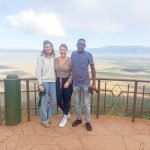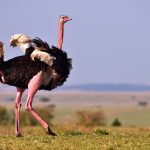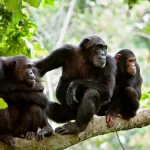
- Medical Check
-
Written by : Tarimo Expeditions
Medical Check for Preparation on Kilimanjaro Climb
Mount Kilimanjaro is the highest peak in Africa, standing at 19,341 feet (5,895 meters) above sea level. Every year, thousands of adventure-seekers make their way to Tanzania to climb this majestic mountain. However, climbing Kilimanjaro is not an easy feat, and it requires proper preparation and planning, including a thorough medical checkup. In this article, we will discuss the importance of a medical check for preparation on the Kilimanjaro climb and what to expect during the checkup.
Importance of a Medical Check for Kilimanjaro Climb
Understanding the Risks
Climbing Kilimanjaro is a physically demanding activity that requires a high level of fitness. Altitude sickness is a common risk when climbing Kilimanjaro. Altitude sickness is caused by the decreased availability of oxygen at higher altitudes and can lead to severe complications such as pulmonary edema and cerebral edema. A medical checkup can help identify any underlying medical conditions that can increase the risk of altitude sickness.
Assessing Fitness Levels
A medical checkup can help assess the individual’s overall fitness levels, including cardiovascular fitness, respiratory fitness, and muscular strength. Based on the results of the checkup, a doctor can recommend appropriate exercises and training programs to improve fitness levels and reduce the risk of injuries during the climb.
Identifying Medical Conditions
A medical checkup can help identify any underlying medical conditions that can increase the risk of complications during the climb. For example, individuals with a history of heart disease or high blood pressure may be at higher risk of developing complications during the climb. In such cases, a doctor can recommend appropriate medications and precautions to manage the condition and reduce the risk of complications.
What to Expect During the Medical Checkup
Medical History
During the medical checkup, the doctor will ask questions about the individual’s medical history, including any past illnesses, surgeries, allergies, and medications. The doctor may also ask about the individual’s fitness routine and any past experience with high-altitude climbing.
Physical Examination
The doctor will perform a physical examination to assess the individual’s overall health and fitness. The examination may include tests such as blood pressure, heart rate, lung function, and body mass index (BMI).
Laboratory Tests
The doctor may also recommend laboratory tests to assess the individual’s overall health and identify any underlying medical conditions. The tests may include a complete blood count (CBC), lipid profile, liver function tests, and kidney function tests.
Altitude Simulation Test
In some cases, the doctor may recommend an altitude simulation test to assess the individual’s tolerance to high altitudes. During this test, the individual is placed in a low-oxygen environment, similar to the conditions at high altitudes. The doctor will monitor the individual’s vital signs and symptoms to assess their tolerance to the low-oxygen environment.
Climbing Kilimanjaro is a challenging and rewarding experience that requires proper preparation and planning, including a thorough medical checkup. A medical checkup can help identify any underlying medical conditions, assess fitness levels, and reduce the risk of complications during the climb. It is important to consult with a qualified medical professional before embarking on any high-altitude adventure.
FAQs
How long before the climb should I have a medical checkup?
It is recommended to have a medical checkup at least six weeks before the climb to allow enough time to address any medical conditions or improve fitness levels.
What should I bring to the medical checkup?
It is recommended to bring any relevant medical records, such as past test results or medication lists, to the medical checkup. Additionally, wearing comfortable clothing and bringing a list of questions for the doctor can help ensure a productive and informative visit.
Can altitude sickness be prevented?
Altitude sickness cannot be entirely prevented, but certain precautions can be taken to reduce the risk of complications. These precautions may include a gradual ascent, staying hydrated, and avoiding alcohol and smoking.
What happens if I am deemed unfit for the climb during the medical checkup?
If the doctor deems an individual unfit for the climb during the medical checkup, it is important to prioritize one’s health and safety and reconsider the decision to climb Kilimanjaro. It may be necessary to delay the climb until proper medical treatment or fitness training can be pursued.
Is it necessary to see a doctor for every high-altitude adventure?
While a medical checkup is highly recommended for any high-altitude adventure, the frequency of checkups may vary depending on the individual’s overall health and fitness levels. It is important to consult with a qualified medical professional to determine the appropriate frequency and type of checkup for each adventure.
Can medication be taken to prevent altitude sickness?
Medications such as acetazolamide and dexamethasone may be prescribed to prevent altitude sickness, but they should only be taken under the guidance of a qualified medical professional. These medications may have potential side effects, and it is important to weigh the benefits and risks before taking them.
In conclusion, a medical checkup is a crucial step in the preparation for climbing Kilimanjaro. It can help identify any underlying medical conditions, assess fitness levels, and reduce the risk of complications during the climb. It is important to prioritize one’s health and safety before embarking on any high-altitude adventure and to consult with a qualified medical professional for proper guidance and recommendations.
Best of Our Tanzania Safaris
From the Wildebeest Migration to the Big 5 and Tropical White Sand Beaches
Explore the best of Tanzania with our curated collection of safaris packages. Experience breathtaking wildlife, stunning landscapes and cultural richness, there’s something for everyone.



